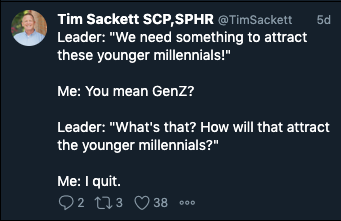Oh, I bet its working for a great boss! Or, maybe it’s having a best friend at work! No, it must be dog-friendly! Puppies make me happy! I wonder if it’s money or free tacos or something like that!?
No, you’re all wrong!
In fact, the one thing that correlates to high employee happiness at the office is the one thing you’re destroying! Isn’t that great! We’ve got one shot, one opportunity, to seize everything our employees ever wanted, but in that moment we let it slip…
There was a study done recently that asked about their modern workplaces. What was it in their office that made them the happiest? Turns out 90% of us want a private office. Yet, on the flip side, in all of our brilliance over 54% of us are converting our offices to open floor plans! Why? Because we’re stupid!
Also, because employees are kind of stupid in answering these kinds of surveys! They will tell you they want one of those cool, open office concepts with the bean bag chairs and picnic tables in a big room because look at those pictures of all the smiling faces of those employees. Also, is it just me, or do those smiling faces seem really attractive as well!? You know what? If we had open offices we would be more attractive!
For a decade, idiots like me and every media outlet known to man as talked about how Millennials just want open, collaborative spaces. We’ll be more productive, and have better teamwork, and make faster decisions, and be more collaborative, and we’ll solve global warming! The reality is much different. Turns out, working in a big, loud room with a bunch of fellow idiots employees makes you less productive.
Oh, great I get to sit in the middle of a giant room, across a giant table and watch Steven pick his nose.
Here’s what happy productive employees actually want in an office:
- Private.
- Great WiFi and up to date technology.
- Quiet.
- Comfortable.
- Cool design (which doesn’t equal ‘open concept’).
- Well lighted.
- Professional.
- Clean, but not sterile.
Do we really hate cubes? Well, we hate cube farms that remind us of 1979 Soviet Union. I don’t think most hate cubes that are designed for modern workspaces. The problem is we tend to not think about how we can use cubes in a modern design that lets people have a private space, but also open space for times they want that as well. It’s either cube farm or giant open warehouse, we tend to not think in between.
Ultimately, our employees want privacy and cool. So, now you can figure out what that looks like over the next decade!

